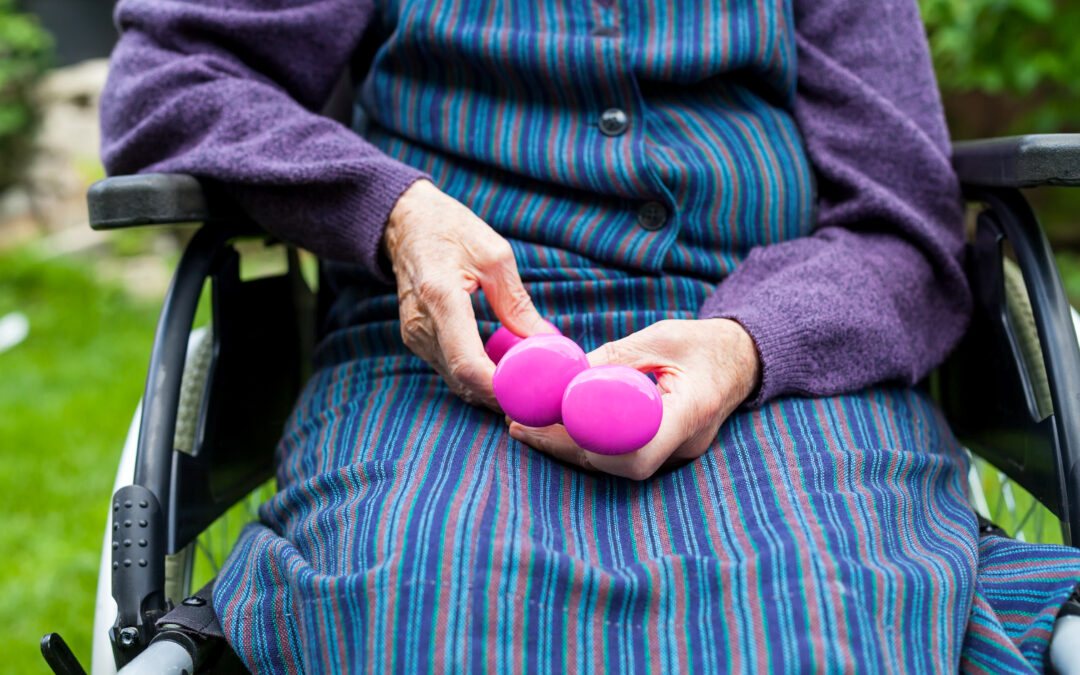Dear Friend,
today’s “Health Tip” will try to offer you some helpful insights into the many benefits of exercising and physical fitness training as it pertains to the prevention and management of Alzheimers and Dementia. Back In Form is offering a group of Fitness Trainers and Therapists that have become experts in working with this population and address their physical fitness needs.
- What is Demtia and Alzheimer’s
Alzheimer’s Disease is the most common form of dementia and is considered a degenerative neurological illness, which also include other diseases such as Parkinson’s, Huntington’s and some forms of Multiple Sclerosis, which all worsen over time.
Other forms of dementia are caused by vascular problems in the brain affecting blood circulation i.e. traumatic brain injuries, or infections of the Central Nervous System (Meningitis, HIV, Kreutzfeld-Jacob Disease), or long term alcohol or drug abuse and certain types of hydrocephalus.
Dementia can furthermore be divided by locality, into cortical (affecting cerebral cortex) and subcortical (affecting are beneath cerebral cortex) types of dementia. Cortical dementias affect memory and language, people often suffer from severe memoryloss (Alzheimer’s and Kreutzfeld-Jacob), while those with subcortical dementia find their thinking and the initiation of activity slowed (Parkinson, Huntington, HIV).
- Prevention and treatment of Dementia through physical activity and exercise
Besides the many well known benefits of exercise that include it’s positive impact on cardio-vascular health, blood pressure, metabolic health issues such as diabetes, hyper-lipidemia and prevention of certain types of cancer there is a growing number of studies that provide convincing evidence that long term regular exercise can help prevent, as well as help manage the progression of the dementia after onset. There seem to be two major positive effects of regular exercise on brain aging and the development of dementia; one directly affecting the regeneration of neurons and neuron connections often referred to as brain neuroplasticity, the other by reducing the artherosclerotic cerebrovascular disease risks and improving blood circulation in the brain. (Artherosclerosis refers to a hardening of arteries due to fatty plaque buildup on the arterie walls that can lead in the brain to circulatory problems and ultimately a cerebral stroke)
The vast majority of studies, especially with animals, have been about cardio-vascular exercises, but there are a few studies supporting that strength and resistance training promotes similar benefits.
“Thus, ongoing, moderate-intensity physical exercise should be considered as a prescription for lowering cognitive risks and slowing cognitive decline across the age spectrum.” (https://www.ncbi.nlm.nih.gov/pmc/articles/PMC3258000/)
As physical abillities change during the progression of dementia and coordination, balance, mobility and strength change the training of the patient has to be adjusted acoordingly.
- Training the Dementia Athlete
As with any athlete, a detailed health history should precede all training to gain information on possible other health risks that need to be considered while exercising.
- heart problems
- high blood pressure
- unexplained chest pain
- dizziness or fainting
- bone or joint problems (that exercise may make worse)
- breathing problems
- balance problems
- frequent falls.
- Fitness Training during early and middle stages of Dementia
Other health problems excluded, people in the early stages of the disease are typically capable of performing the same physical activities as their healthy peers. I suggest in accordance with the American Heart Association a minimum of 150 minutes per week of moderate aerobic activities or 75 minutes of vigorous aerobic activities. Great forms of exercise are walking, jogging, stationary cycles or steppers, or swimming. In addition we urge our clients to add strength/resistance training and exercises to help improve or maintain good mobility, agility and balance. Tai-Chi, adaptive Yoga and Dance classes can address those needs very adequately.
- Fitness Training during the later stages of Dementia
The challenges of training during the later stages of Dementia are commonly related to the growing cognitive impairment and language comprehension difficulties. In addition some patients with Alzheimers become less ambulatory and need assistance with walking, standing up and transfer to toilet or shower.
Even at this late stage I stress the importance of exercise and continue to promote as much movement as possible in the patients day to day life.
- Frequent position changes from bedroom to kitichen to livingroom etc.,
- assisted walking,
- chair exercises to maintain strength and joint mobility
are helpful ways to maximize physical independence, reduce caregiver strain and reduce risks of secondary health problems. When designing a customized program for this population I suggest you stick to a specific program and make neccessary changes only in small increments over a longer period of time. The predictability and regognition of an exercise program creates a feeling of comfort in the patient, who has lost control of so many other aspects of his/her life. Exercises that improve ambulation (transfer ability), prevent join stiffness and pain, and overall strength to enable the patient to assist his/her caregiver, should be the main goals of the exercise program at later stages of Dementia.
I hope I was able to provide you with some helpful information that will help keeping you, your patient, or loved one healthier, more independent for longer, and more prepared in dealing with the affects of Dementia and Alzheimer’s Disease. As always, if you have questions or comments please don’t hesitate to email me or call me.
In good health,
Hartmut Broring — M.S. Physio-Therapy
[email protected] – 408.455.2887 – www.backinform.com
Resources:
http://www.bmj.com/content/357/bmj.j2709/rr-7

